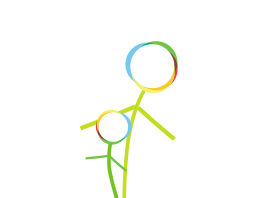
Each and every one of us is strong in some areas, and average or weak in others. Finding our strength area, nurturing and expressing it, can offer us an experience of success and empower our feelings of self-worth.
There are many and various possible areas of strength, and they span well beyond the range of the subjects offered in a school’s curriculum. A student, who is weak in mathematics, may be stellar in gardening; and the one who is mediocre in grammar may be excellent in painting.
Personal Education focuses on working hand in hand with the child in his/her quest for finding and defining their personal strength areas. Discovering the areas of strength is achieved by two principal elements:
The teacher must experience, firsthand, the feeling of self-realization and exploration, for becoming a supportive and empowering guide to a child who goes through his/her personal journey. A school that adopts the Personal Education model, encourages its teachers to find and fulfill their strength areas and to act according to them. A teacher with low self-worth, who experienced frustration, would encounter an enormous amount of difficulty empowering his/her students.
Written and signed between the mentor and the student’s parents and supported by the dialogue circles.
The teacher becomes a meaningful person in the child’s life. The child and the mentor hold personal conversations and the mentor becomes an integral part in the child’s different circles of life: family, youth organizations, community center, or social services.
Each and every child is a member of a support group that meets every morning. In this group setting, the child sets up his/her goals and revisits the process of their realization.
Personal Education increases the student’s self-worth and self-perceived social status as well as his/her academic achievements. The process improves the school’s social climate, reduces violence and generates a positive change in the city’s image. The Personal Education program perceives the student as part of a family and the social environment in which he/she lives. Therefore, this program requires collaborative work between the education systems (formal and informal), social services and NGOs. The goal of these types of collaborations is to generate coordination and pooling of resources between all the different types of municipal services provided to the student and to his/her family.